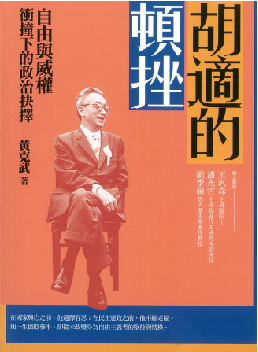Hu Shi was probably the most well-known intellectual in modern China. As a leader of the May Fourth and Vernacular Chinese Movements, he subsequently served as the president of the Peking University, the Ambassador to the United States during the World War II, and the president Academia Sinica. Famous as an advocate of democracy, liberty, and human rights, he was frequently criticized as a “weak” person in politics despite the prominent positions he held. Compared to Lei Zhen and Yin Haiguang who openly protested against Chiang Kai-shek’s authoritarian rule, Hu kept himself from the “fire pit” and made compromises with Chiang. Criticism of Hu for his weakness, however, may obscure the historical context from which his personality and political decisions emerged. Hu seemingly prevented taking risk throughout his political career, but he never gave up his liberal ideals; he called for tolerance amid national emergency, but never violated his principles of democracy and constitutionalism. Retrieving layers of Hu Shi‘s experience, this book revisits his complicated engagements with political questions and authorities.

